Grass-Fed, Grass-Finished Goat
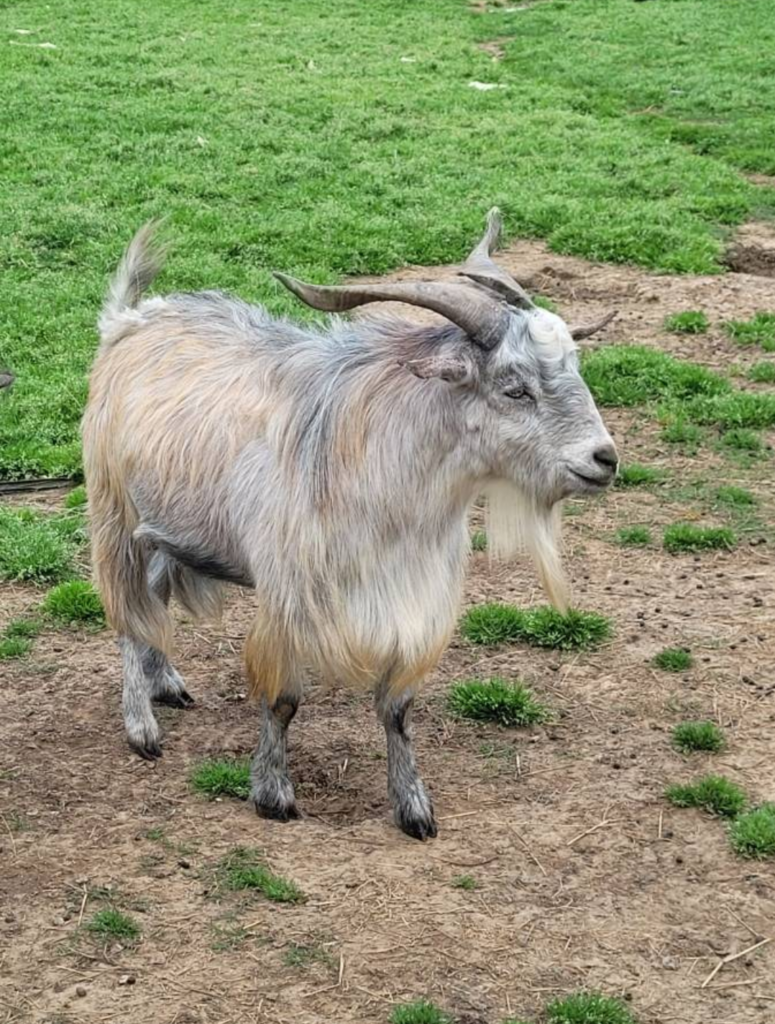
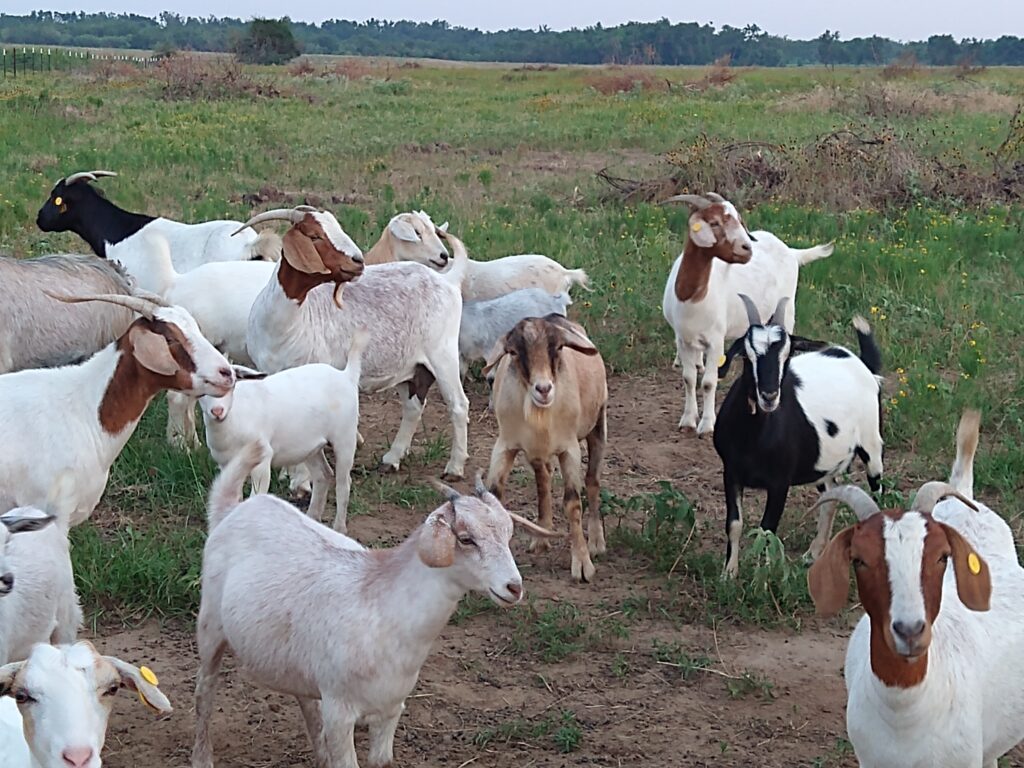
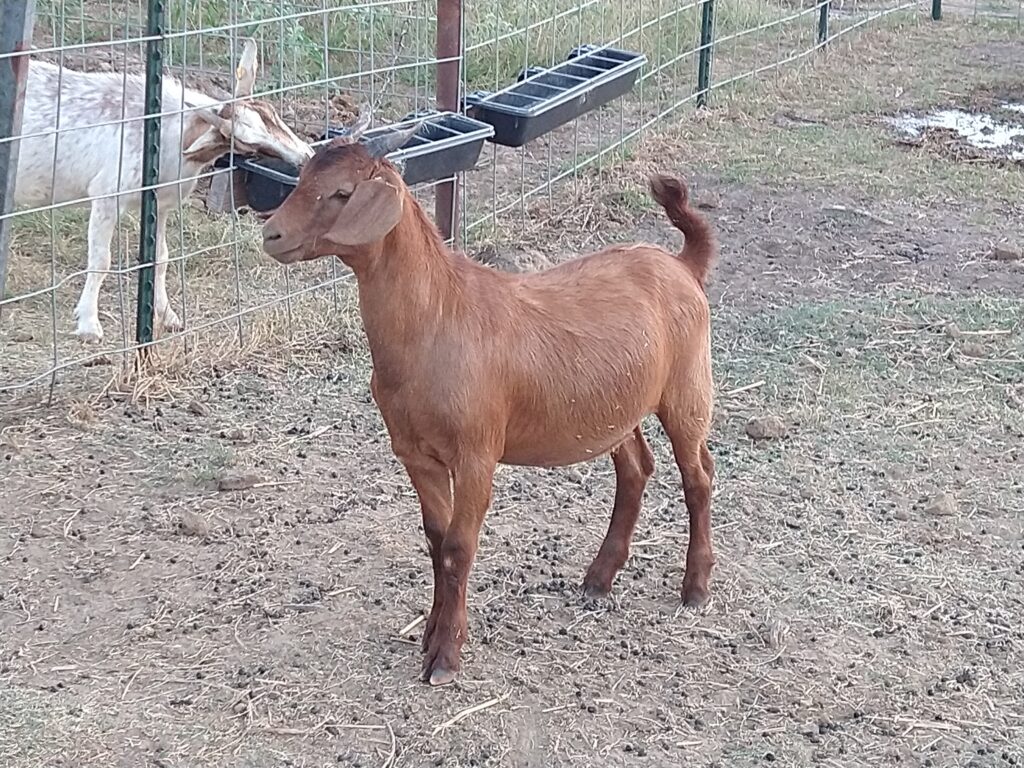
Our goats are a mix of Boer and Tennessee Meat Goats, raised on pasture and are never fed grain or corn. Like our cattle, they just get the occasional alfalfa hay or pellets as a treat. We are constantly working to improve the genetics of our goats, focusing on disease resistance and increased meat-to-bone ratio. Our goats reach 50-70 lbs by 5 months and we typically have a wide range of sizes available, but cannot guarantee an exact weight.
We use our cattle to scrub our pastures of the pests that would otherwise afflict goats by rotating the cattle through our pastures following our goat herd. While goats are browsers and prefer leafy weeds, the cattle will clean up the grass that the goats leave behind. This grass can host parasites prevalent in all pastures and spread by the deer population. While these parasites can be deadly to goats, cattle are unaffected, and in fact their stomach environment kills these parasites.
Pasture rotation is also critical to the management of these parasites. Based on the life cycle of the organism, if we rotate the goats to fresh pasture when the parasite is needing a host then it will inevitably die before the goats are allowed to graze that pasture again.
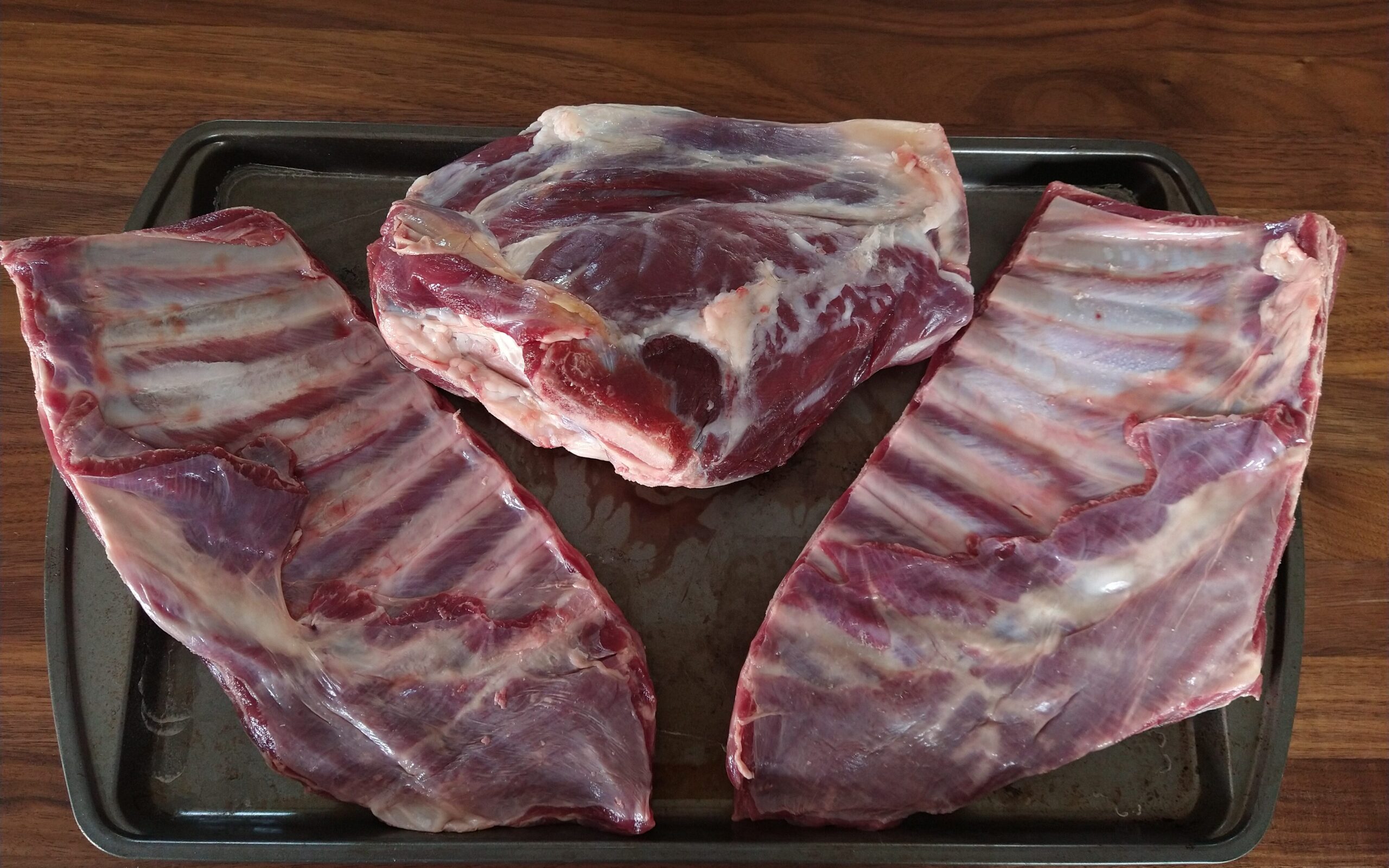
Goat priced according to $4/lb live weight plus a processing fee of $85 (vacuum packed) or $75 (paper wrapped). Whole animal only. Customer must pick up directly from the butcher.
Goats are by far the most fragile and management intensive animal on our farm. If a goat is treated with antibiotics then they are no longer deemed fit for sale for meat. We reserve the use of antibiotics in isolated cases for critically ill animals. We firmly believe in giving our animals the best life possible and will not let them suffer by strictly adhering to a no antibiotics policy.
We do not believe in the broad indiscriminate use of antibiotics as a preventative measure. We instead support and try to encourage genetic lines that are naturally resistant to negative outcomes. Since being brought to America, goats have been raised with heavy chemical dewormer and antibiotic dependence, leading to them being overall fragile and susceptible to illness and parasites. It was only recently that goat farmers have been selecting for resilient animals rather than for meat or dairy yield.
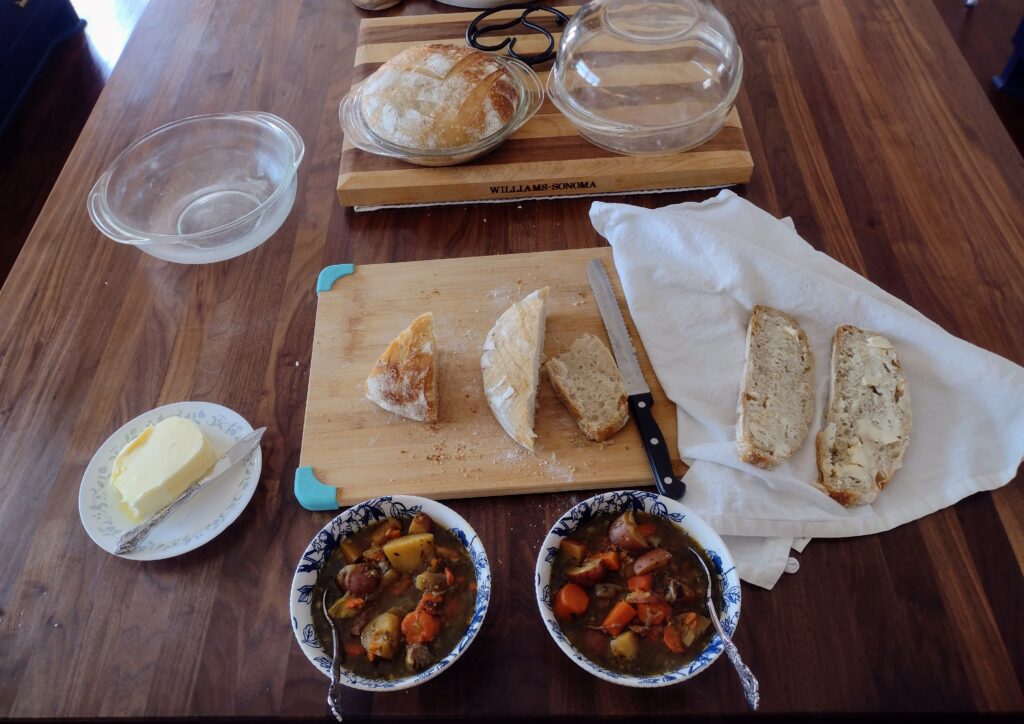
| Cut | Price/lb |
| Loin Chop | 20 |
| Sirloin Chop | 22 |
| Rib Chop | 20 |
| Leg Roast | 12 |
| Leg Steak | 16 |
| Goat Ribs | 14 |
| Stew Meat | 14 |
| Shank/Soup Bones | 6 |
| Ground | 14 |